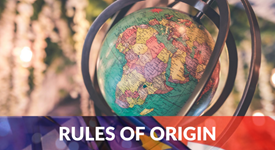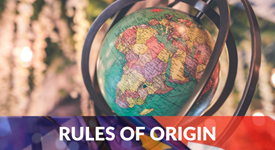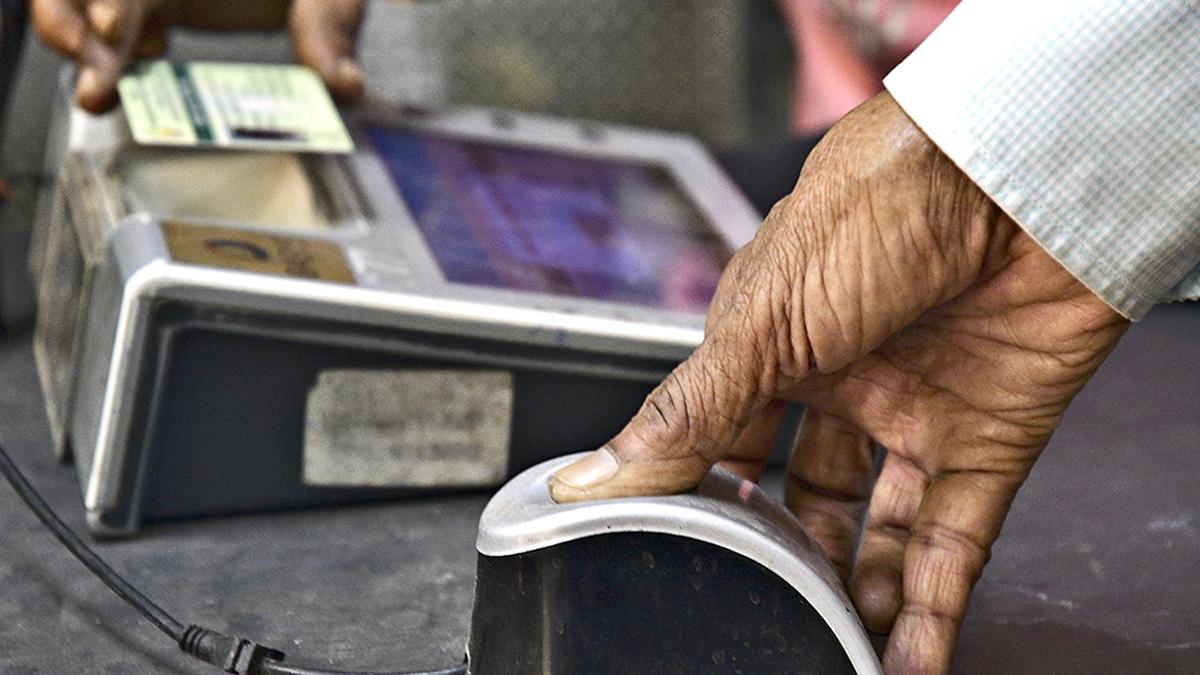Description

Disclaimer: Copyright infringement not intended.
Context
Rules of Origin
- Rules of originare the rules to attribute a country of origin to a product in order to determine its "economic nationality".
- The WTO Agreement on Rules of Origin arising out of the Uruguay round of WTO negotiations was an attempt to harmonize the rules of origin for different countries.
Why are rules of origin important?
- Rules of origin are important because many trade rules, regulations, and laws, provide differential treatment (known as preferential rules of origin) to goods and products based on where they originate from.
- For example, under the NAFTA rules of origin, certain goods were granted duty-free or reduced tariff treatment.
- Thus, the need to establish rules of origin stems from the fact that the implementation of trade policy measures, such as tariffs, quotas, and trade remedies, in various cases, depends on the country of origin of the product at hand.
Why do Free Trade Areas develop rules of origin?
- Free trade areas develop rules of origin in order to differentiate between products made and produced within the free trade region and those without.
- This way, trading partners of one member of a free trade agreement can’t indirectly make use of the free trade agreement by passing their products through one country and into another.
|
Free-Trade Area
A free-trade area is a region encompassing a trade bloc whose member countries have signed a free trade agreement. Such agreements involve cooperation between countries to reduce trade barriers, import quotas and tariffs, and to increase trade of goods and services with each other. But there is no such common trade policy toward non-members.
|
Where are rules of origin used?
Rules of origin are used:
— to implement measures and instruments of commercial policy such as anti-dumping duties and safeguard measures;
— to determine whether imported products shall receive most-favoured-nation (MFN) treatment or preferential treatment;
— for the purpose of trade statistics;
— for the application of labelling and marking requirements; and
— for government procurement.
.jpg)
|
Anti-Dumping Duty
An anti-dumping duty is a protectionist tariff that a domestic government imposes on foreign imports that it believes are priced below fair market value. Dumping is a process wherein a company exports a product at a price that is significantly lower than the price it normally charges in its home (or its domestic) market.
Most Favoured Nation (MFN) Principle
The most favoured nation (MFN) principle is based on the idea that countries should treat all their trade partners equally—that no one country should be “more favoured.” It means no country should give special treatment to goods or services coming from one particular trading partner.
|
WTO Agreement on Rules of Origin
- The Rules of Origin Agreement of the World Trade Organization (WTO) requires that WTO members apply their rules of origin in an impartial, transparent, and consistent manner. The Agreement also requires that rules of origin not restrict, distort or disrupt international trade.
- Rules of origin are the laws, regulations and administrative guidelines that governments use to determine an imported product’s country of origin. But it is not always an easy matter when the raw materials, manufacturing, processing or assembly of a product can be provided in several different countries.
- Rules of origin have many applications— for example in setting duty rates (including anti-dumping and countervailing duties), granting tariff preferences, administering government procurement policies and applying safeguards.
- All WTO membersare parties to this Agreement. The Agreement entered into force on January 1, 1995. It has no expiration date.
WTO Rules of Origin Agreement Provisions
- Under the WTO Rules of Origin Agreement, the importing country must issue its origin assessment within 150 days. Assessments are valid for three years, and changes in origin rules cannot be applied retroactively.
- Information of a confidential nature that is provided to government officials for the purpose of assessing origin must be treated as confidential by the authorities concerned.
- The WTO Agreement provides for the establishment of a Committee on Rules of Origin, where member countries consult on matters relating to the operation of the Agreement. This Committee and a Technical Committee on Rules of Origin of the World Customs Organization (WCO) have been charged with developing a permanent, harmonized set of product-specific origin rules that will apply to all trade in goods — except preferential trade — among WTO members.

CAROTAR RULES 2020
- The Customs (Administration of Rules of Origin under Trade Agreements) Rules, 2020 (CAROTAR, 2020),was notified by the Central Board of Indirect Taxes and Customs. It came into force from 21st September 2020.
Key Features of CAROTAR 2020
- The Rules define the extent of information which is to be possessed by the importer.
- An importer needs to keep the origin-related information specific to every Bill of Entry (B/E) for a minimum of 5 years. The five years period starts from the date of filing the B/E.
- The Rules mandate the inclusion of specific origin-related information in B/E.
- It provides for the scenario where verification can be initiated from the exporting country.
- It sets the timeline for receipt of information from the verifying authorities, not provided in Trade Agreements.
- It sets the timeline to finalise decisions based on the information received from the importer or verifying authorities.
- It provides for the action that can be taken on the imported identical goods when the goods do not meet the originating criteria.
Read about CAROTAR Rules in detail: https://www.iasgyan.in/blogs/carotar-rules-2020
|
Central Board of Indirect Taxes & Customs (CBIC)
Central Board of Indirect Taxes & Customs (CBIC), Department of Revenue, Ministry of Finance is responsible for the formulation of policy relating to levy and collection of Indirect taxes namely, Customs duty, Central Excise duty Central Goods and Service tax. CBIC also exercises overall supervision over Customs, Central GST field formations located across the country.
It was created under the Central Boards of Revenue Act, 1963. The CBIC is headed by a Chairman and has 6 members in addition to the Chairman. The Chairman of Central Board of Indirect Taxes and Customs (CBIC) is appointed by Appointments Committee of the Cabinet (ACC) which is headed by the Prime Minister of India.
|
https://www.financialexpress.com/economy/customs-notifies-rules-of-origin-for-india-australia-trade-pact/2926021/








